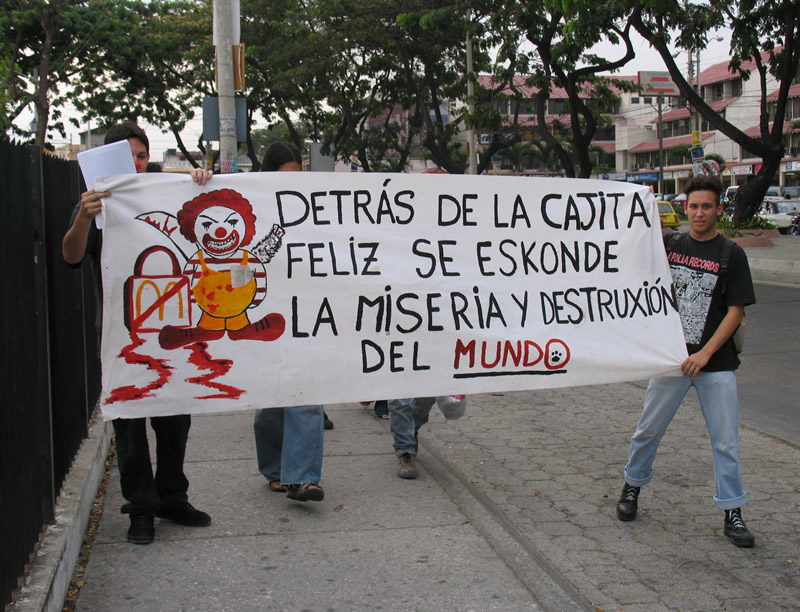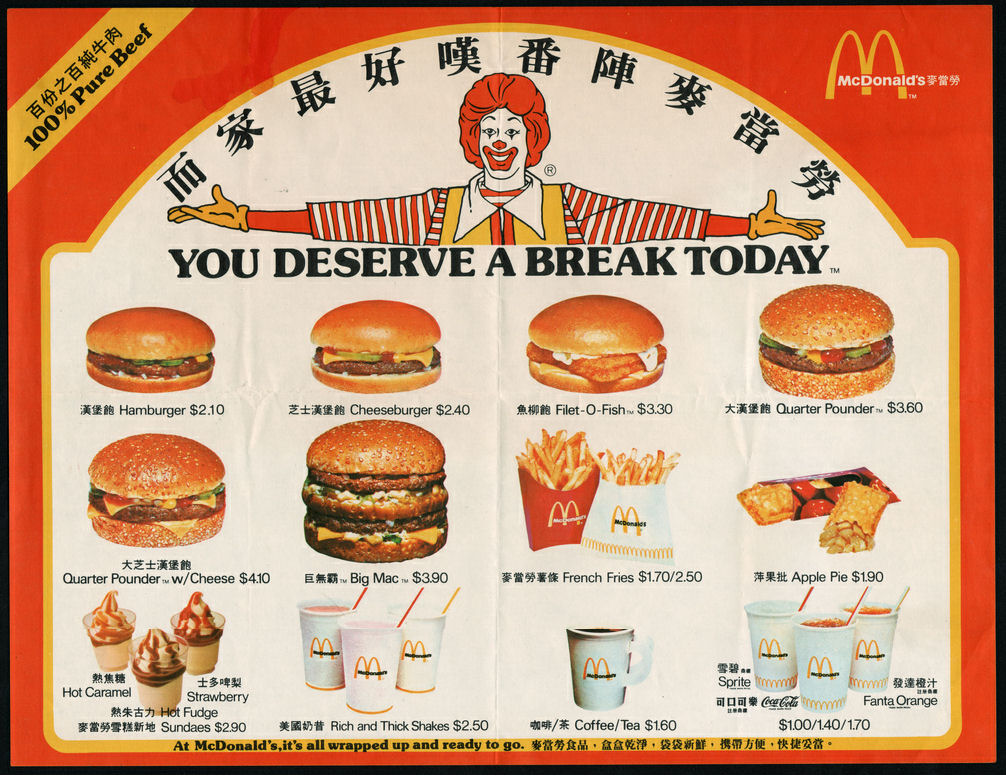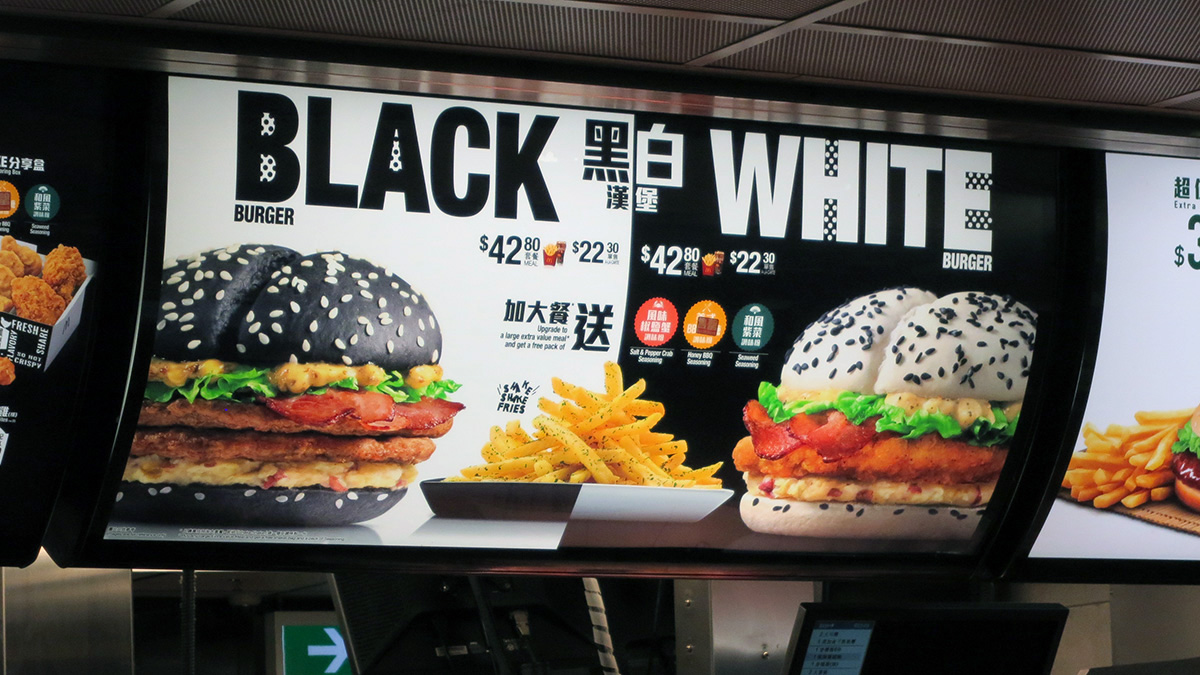McDonaldization
Citing sociologist George Ritzer, Wikipedia defines McDonaldization as
...the way in which ‘the principles of the fast-food restaurant are coming to dominate more and more sectors of American society as well as of the rest of the world.’
McDonaldization, continued
 Ritzer identifies four aspects of McDonaldization:
Ritzer identifies four aspects of McDonaldization:
- Efficiency
- Calculability
- Predictability
- Control
Cultural Imperialism
McDonaldization is thus a kind of cultural imperialism. Wikipedia's authors define this as
the cultural hegemony of...industrialized or economically influential countries, which determine general cultural values and standardize civilizations throughout the world.
Watson's opening questions reference these issues (121)
Does the roaring success of McDonald's and its rivals in the fast food industry mean that Hong Kong's local culture is under siege?
Are food chains helping to create a homogeneous, 'global' culture better suited to the demands of a capitalist world order?
Active Audiences
In the assigned chapter, James Watson answers "No."
Watson challenges concepts like cultural imperialism and McDonaldization as too simplistic. He does so using a variation of the active audience model, which argues that people are never simply passive consumers or victims of cultural impositions, whether these are restaurants, or TV shows, or musical styles, etc.
Instead, Watson hopes to demonstrate that Hong Kong's residents "have most assuredly not been stripped of their cultural heritage, nor have they become the uncomprehending dupes of transnational corporations" (129).
Instead, "In general Hong Kong consumers have accepted the basic elements of the fast food formula, but with 'localizing' adaptations" (126).
Would you hold your wedding at McDonalds?

The popularity of McDonalds as a wedding venue may be the most obvious evidence that the people of Hong Kong has made the brand their own. "McDonalds" now means different things in different places.
People of Hong Kong: “Great—we'll take it!”
- Breakfast and afternoon snacks
- Clean bathrooms
- Queueing at registers
- Children as expert consumers
- Birthdays and birthday parties
- Weddings
People of Hong Kong: “Meh.”
- Dinner
- Friendly service
- "Please wait to be seated" (no hovering)
- No lingering
- Bussing trays
- Single-serve napkins
Corporate Strategies and Responses: from standardization...

Ordinary people have embraced some of and rejected other aspects of McDonald's corporate model, but the company itself has also been an active agent.
As Watson notes, "Until recently the food has been indistinguishable from that served in Mobile, Alabama or Moline, Illinois" (123).
Corporate Strategies: ...to glocalization

That has changed as McDonald's—like other companies throughout the world—has shifted away from standardization and toward strategies of glocalization.
Watson's argument in summary, 129 and 122
A lifestyle is emerging in Hong Kong that can best be described as postmodern, postnationalist, and flamboyantly transnational.
In Hong Kong...the transnational is the local....
